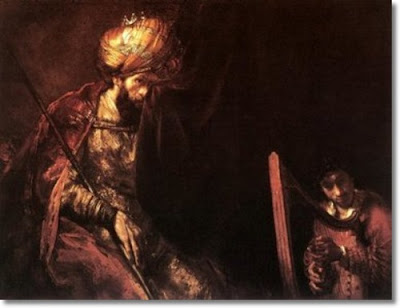Landscape at Auvers in the Rain
My hands are bloody from digging.
I lift them, hold them open in the wind,
so they can branch like a tree.
Reaching, these hands would pull you out of the sky
as if you had shattered there,
dashed yourself to pieces in some wild impatience.
What is this I feel falling now,
falling on this parched earth,
softly,
like a spring rain?
From The Book of Hours II, 34































